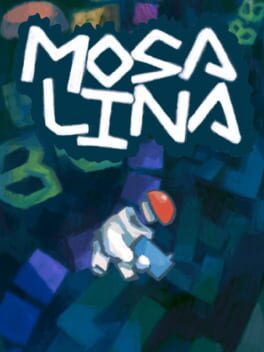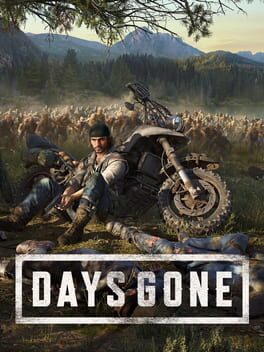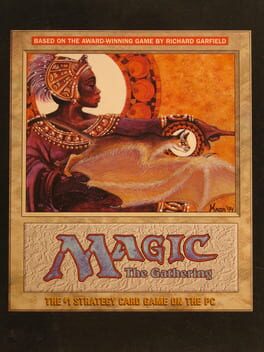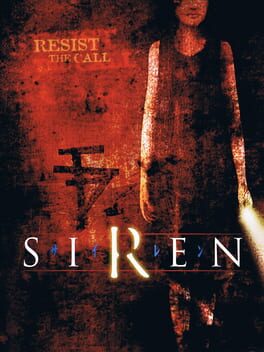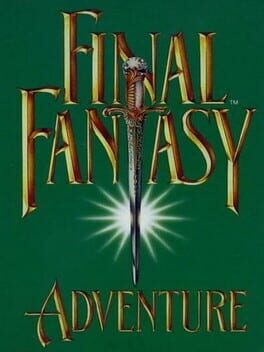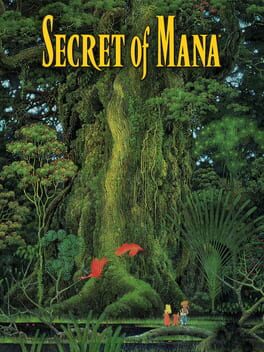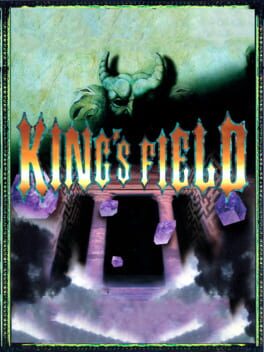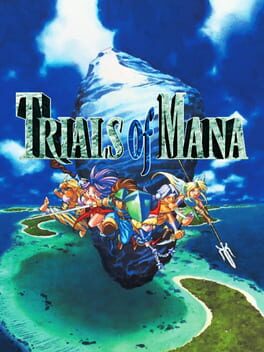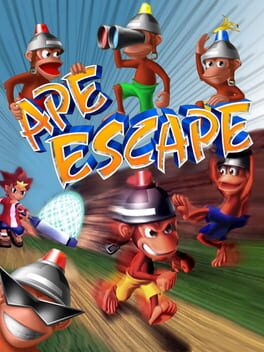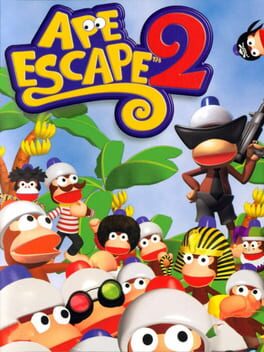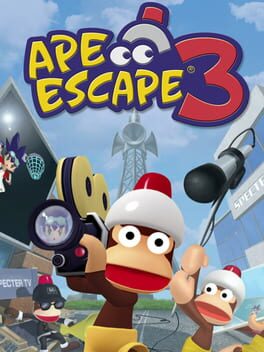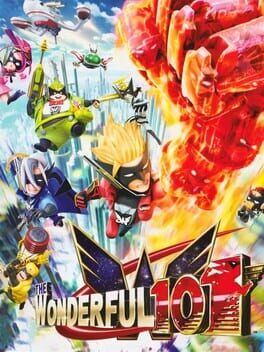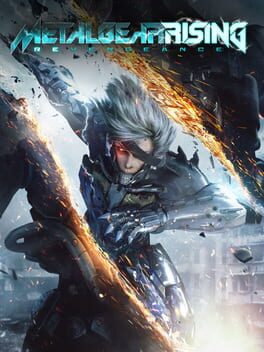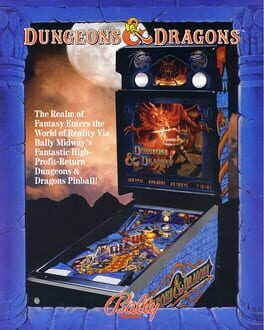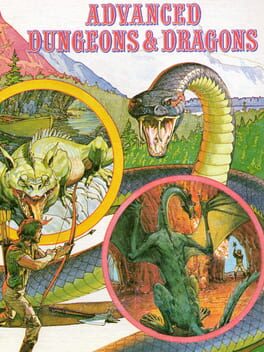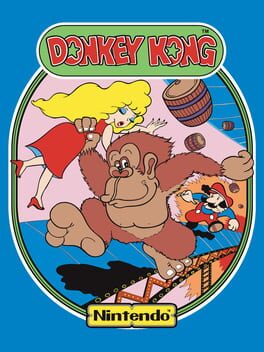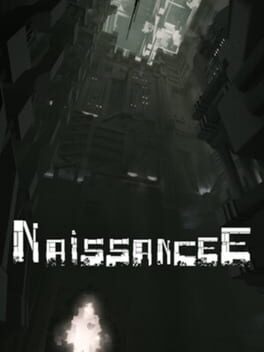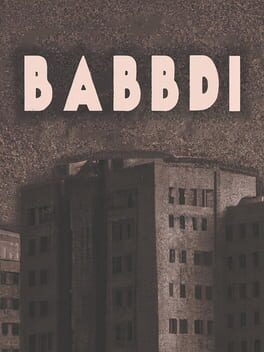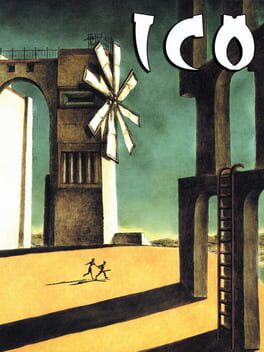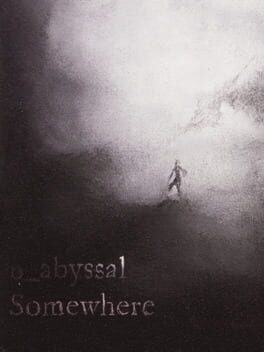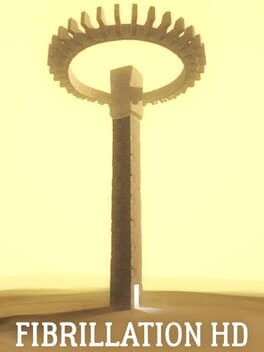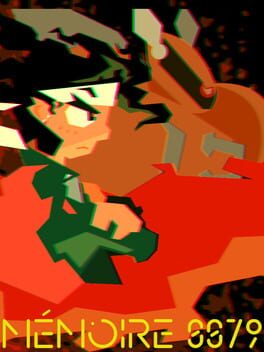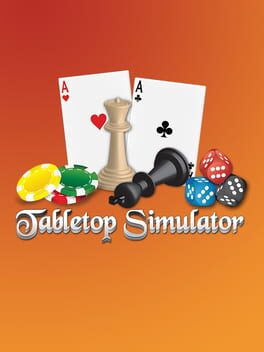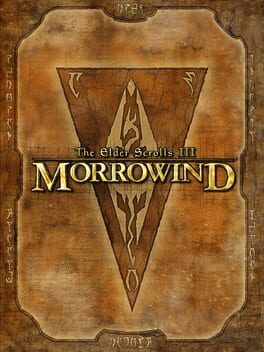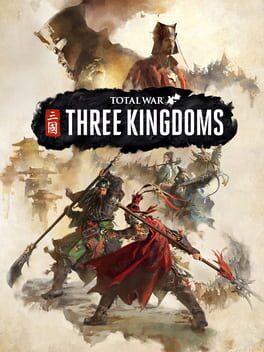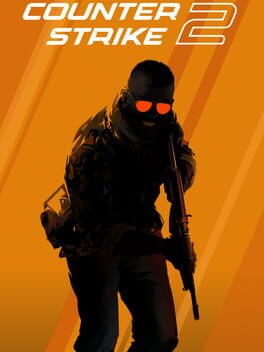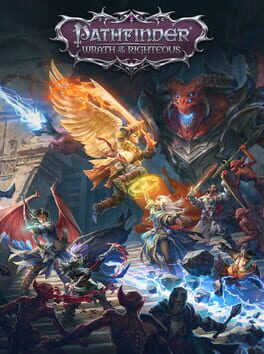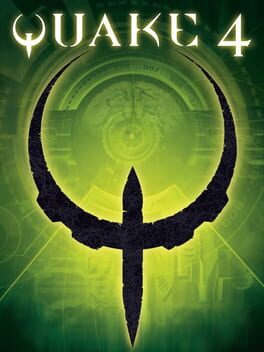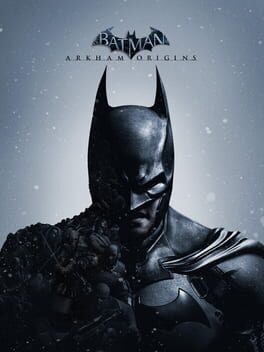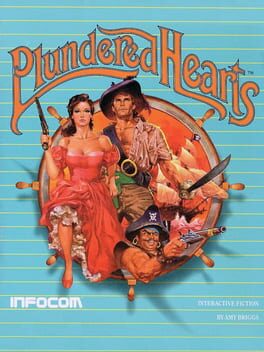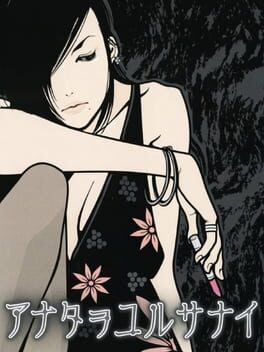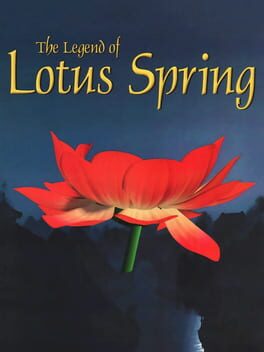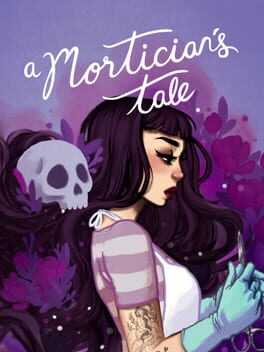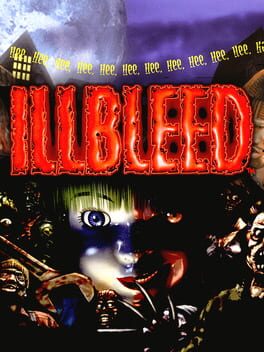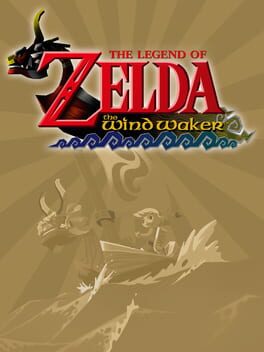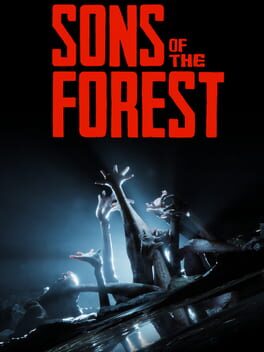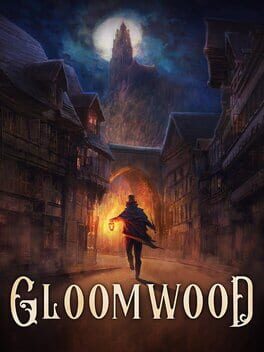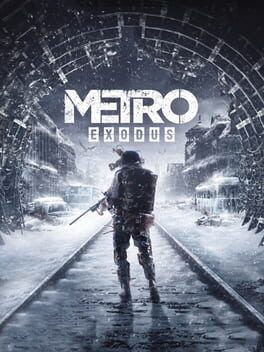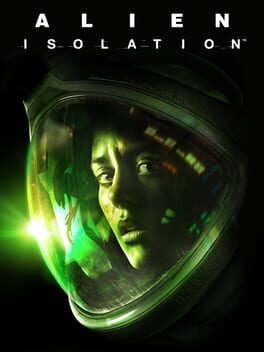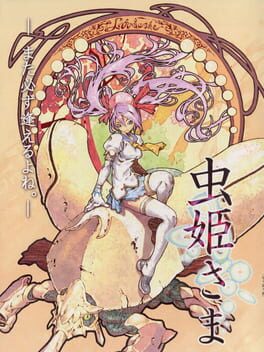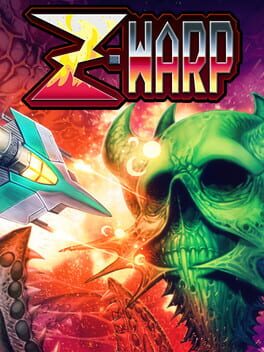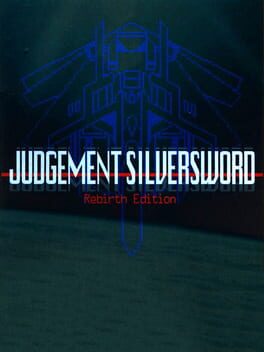clownswords
521 reviews liked by clownswords
Mosa Lina
2023
God Hand
2006
dog i hate it here so much. i'm minding my own business, poisoning random passerbys with my Pimpy Son Opp, when this guy with a fuck-off arm walks up and starts doing Rising Tackles on my boys. He kicked one of them in the nuts and a crowd cheered. we're in the middle of the desert. I hit him with a club and then he started crying and we all felt really bad. Where's Jagi man. this shit blows, I want to go home.
Super Mario 64
1996
Days Gone
2019
shockingly lovely. one of the only open world games literally ever to understand what's compelling about the concept. that the spaces should become as intimately familiar as your own hometown, not just repetitious landmarks to be sped past. that the game should be about navigating those streets and paths, not fast-traveling over them. that the act of getting around should be the point, not just an arbitrary mechanic to shuttle you between setpieces or a fidget toy for the post-game. i laughed at the self-serious trailers too, but this is a knockout.
Dragon's Dogma II
2024
12 years on from the strange, incomplete original, DD2 is more of the same, uneasily sitting between the uncompromising Souls series & more conventional narrative ARPGs. At times evoking a desolate offline MMO, DD2 is at its best when out in the wilds, the sun setting at your back & two or more beasts landing on the path ahead, all Arising out of dynamic systems.
The main questline unfortunately does not play to these strengths, with much of Act I confined to the capital & some really dull writing. Fortunately, writing does not maketh a game, and side-quests that take you out into the unreasonably huge map are much more interesting, and really need to be sought out in the crowds and corners of the world. Keeping track of these with the bizarre quest tracker is uneven and obtuse: you’re either reading the landscape and tracing clues or just beating your head against a wall figuring out what the game requires of you.
Dragon’s Dogma 2 is singular, not quite fully realised, a beautifully rendered physics-heavy oddity. The art direction is profoundly generic, but so deceptively understated it at times resembles a Ray Harryhausen film, full of weight, movement and character. DD2 makes you feel like you have friends, albeit stupid friends, who'd throw themselves off a cliff for a view of yonder.
The main questline unfortunately does not play to these strengths, with much of Act I confined to the capital & some really dull writing. Fortunately, writing does not maketh a game, and side-quests that take you out into the unreasonably huge map are much more interesting, and really need to be sought out in the crowds and corners of the world. Keeping track of these with the bizarre quest tracker is uneven and obtuse: you’re either reading the landscape and tracing clues or just beating your head against a wall figuring out what the game requires of you.
Dragon’s Dogma 2 is singular, not quite fully realised, a beautifully rendered physics-heavy oddity. The art direction is profoundly generic, but so deceptively understated it at times resembles a Ray Harryhausen film, full of weight, movement and character. DD2 makes you feel like you have friends, albeit stupid friends, who'd throw themselves off a cliff for a view of yonder.
Dragon's Dogma II
2024
In one of its previews, Hideaki Itsuno was deliberately evasive when asked about why Dragon’s Dogma II’s title screen initially lacks the II, saying only “nothing in this game is unintentional.” You can draw whatever conclusion you like from that, but I think I’ve a different interpretation from most – it’s less a signal that this is a reimagining or a remake or whatever else in disguise than a display of confidence in how well he and his team understand what makes it tick.
As much as I’ll never wrap my head around how they got the first Dragon’s Dogma running on 7th gen hardware (albeit just about), I would’ve said it was impossible not to feel how much more II has going on under the hood in even the briefest, most hasty of encounters if it weren’t being so undersold in this respect. While my favourite addition is that enemies’ individual body parts can now be dragged or shoved to throw them off balance, tying into both this new world’s more angular design and how they can be stunned by banging their head off of its geometry, yours might be something else entirely with how many other new toys there are to play with. One particularly big one’s that you and your pawns can retain access to your standard movesets while clinging to larger enemies if you manage to mantle onto them from the appropriate angle, but you’ve gotta watch out for the newly implemented ragdoll physics while doing so, since the damage received from getting bucked off now varies wildly depending on your position at the time and the nearby environment as a result of them. Successive strikes create new avenues of offence akin to Nioh’s grapples, pressuring you to get as much damage in as you can before letting one loose and taking your target out of its disadvantage state, while also enabling you to keep them in a loop if you’re able to manipulate their stun values well enough. Layers of interaction just keep unravelling further as you play – controlling the arc you throw enemies or objects in, tackling smaller enemies by grabbing them mid-air, corpses or unconscious bodies of bosses now being tangible things you can stand on top of instead of ethereal loot pinatas… I would’ve taken any one of these in isolation. To have them all, plus more, every one being wholly complementary and faithful to the scrambly, dynamic, improvisational core of Dragon’s Dogma’s combat? It’s i n s a n e to me that someone can undergo even a confused few minutes of exposure to any of this and reduce it to “more of the first” or what have you.
Your means of approaching enemies or general scenarios which return from the first game’re further changed by II’s more specialised vocations. Having spent most of my time with Warrior in both titles, I love what’s been done with it in particular. They’ve taken the concept of timing certain skills and applied it to almost every move, anything from your standard swings to its final unlockable skill becoming faster and faster as you time successive inputs correctly – this is only the slow, basic version of the latter and I still feel bad for whatever I batter with it – with chargeable skills now also doubling as a parry for attacks they collide with, similar to DMC5’s clashing mechanic. It’s emblematic of the devs’ approach to vocations in general; Archer’s relatively lacking melee options and litany of flippy, full-on Legolas nonsense encourages keepaway where its four predecessors were all slightly differing flavours of “does everything”, Thief trades access to assault rifle-like bows and invites stubbiness for being able to navigate this world’s much rockier terrain like it’s a platformer, Fighter no longer has to waste skill slots to hit anything slightly above your head and has more versatile means of defence in exchange for melee combat being more punishing in general, etc. It’s to the extent that choosing between any two vocations feels like I’m switching genres, man. In a landscape where people are demonstrably content with having no means of interacting with big monsters other than smacking their ankles, how is even a pretty simple interaction like this not supposed to feel like a game from the future?
On simple interactions, much of this would be lessened if it weren’t for the loss gauge in tandem with the camping system and how these accentuate the sense of adventure which the first game built. The persistent thoughts of “how do I get there?” are retained, but only being able to fully recuperate your health via downtime with the lads and/or ladesses fills every step of the way toward the answer with that much more trepidation, bolstered further by the aforementioned verticality and on the more presentational side of things by how your pawns actually talk to each other now. It leads to some very memorable, emergent experiences which are personal purely to you – one I’m especially fond of involved resting after killing a drake, having my camp ambushed in the middle of the night by knackers who were too high up for me to exercise my k-word pass and having to trek all the way back to Bakbattahl with barely a third of my maximum health as my party continually chattered about how freaky the dark is. I take back the suggestion I made regarding potential changes to the healing system in my review of the first game, because even superfans (or, maybe, especially superfans) can, and do, think too small.
I realise in retrospect that even I, on some level, was wanting certain aspects of Dragon’s Dogma to be like other games instead of taking it on its own merits, something II’s seemingly suffered from all the more with how much gaming has grown since the original’s release, the average player’s tolerance for anything deviating from the norm and, presumably, frame of reference growing ever smaller. Look no further than broad reactions to dragonsplague and its effects (which I won’t spoil) being only the second or third most embarrassing instance of misinformed kneejerk hostility disguised as principled scepticism which enveloped this game’s release to the point you’d swear Todd Howard was attached to it – we want consequences that matter, but not like that! Even if you aren’t onboard with this being the coolest, ballsiest thing an RPG has bothered and will bother to do since before I was born, how can you not at least get a kick out of starting up your own homegrown Dragonsplague Removal Service? You thought you could escape the great spring cleaning, Thomyris, you silly billy? I’m oblivious like you wouldn’t believe, had her wearing an ornate sallet by the time she’d first contracted it and still noticed her glowing red eyes every time, so I’m at a loss as to how it could blindside anybody. It vaguely reminds me of modern reactions to various aspects of the original Fallout; a game which you can reasonably beat in the span of an afternoon, designed to be played with a single hand, somehow commonly seen as unintuitive because it just is, okay? Abandon all delusions of levelheadedness: if a Fallout game with a timer were to release now, the world’s collective sharting would result in something similar to that universe’s Great War or, indeed, Dragon’s Dogma II’s own post-game.
For as many hours as I’ve poured into the Everfall and Bitterblack across two copies of the original, they’re not what I think of when I think of Dragon’s Dogma (or particularly interesting, in the former’s case), which is adventuring in its open world. In that regard, I can’t be convinced that II’s post-game isn’t far more substantial, comparatively rife with monsters either unique or which you’re very unlikely to encounter prior to it, changes to the world’s layout beyond a hole in the ground of one city, its own mechanics (one actually a bit reminiscent of Fallout’s timer), questlines and even setpieces. It’s got a kaiju fight between a Ray Harryhausen love letter and a demonic worm thing which, as of the time of writing, roughly 2% of players have discovered, and instead of being praised for the sheer restraint it must’ve taken to keep something like that so out of the way, it’s chastised for it?
I’m not sure any other game’s ever made me realise how divorced what I want out of games seems to be from the wider populace. So much of this is 1:1 aligned with my tastes that the only thing that feels potentially missing’s the relative lack of electric guitars, but even then I’d be a liar if I told you that Misshapen Eye, the dullahan’s theme, the griffin’s new track, the post-game’s somber piano keys or the true ending’s credits song among others haven’t gotten stuck in my head at some stage anyway or didn’t perfectly complement the action through dynamically changing. It manages this despite clearly not caring about what you or I or anyone else thinks or wants from it. It’s developed a will and conviction all of its own. It’s Dragon’s Dogma, too.
As much as I’ll never wrap my head around how they got the first Dragon’s Dogma running on 7th gen hardware (albeit just about), I would’ve said it was impossible not to feel how much more II has going on under the hood in even the briefest, most hasty of encounters if it weren’t being so undersold in this respect. While my favourite addition is that enemies’ individual body parts can now be dragged or shoved to throw them off balance, tying into both this new world’s more angular design and how they can be stunned by banging their head off of its geometry, yours might be something else entirely with how many other new toys there are to play with. One particularly big one’s that you and your pawns can retain access to your standard movesets while clinging to larger enemies if you manage to mantle onto them from the appropriate angle, but you’ve gotta watch out for the newly implemented ragdoll physics while doing so, since the damage received from getting bucked off now varies wildly depending on your position at the time and the nearby environment as a result of them. Successive strikes create new avenues of offence akin to Nioh’s grapples, pressuring you to get as much damage in as you can before letting one loose and taking your target out of its disadvantage state, while also enabling you to keep them in a loop if you’re able to manipulate their stun values well enough. Layers of interaction just keep unravelling further as you play – controlling the arc you throw enemies or objects in, tackling smaller enemies by grabbing them mid-air, corpses or unconscious bodies of bosses now being tangible things you can stand on top of instead of ethereal loot pinatas… I would’ve taken any one of these in isolation. To have them all, plus more, every one being wholly complementary and faithful to the scrambly, dynamic, improvisational core of Dragon’s Dogma’s combat? It’s i n s a n e to me that someone can undergo even a confused few minutes of exposure to any of this and reduce it to “more of the first” or what have you.
Your means of approaching enemies or general scenarios which return from the first game’re further changed by II’s more specialised vocations. Having spent most of my time with Warrior in both titles, I love what’s been done with it in particular. They’ve taken the concept of timing certain skills and applied it to almost every move, anything from your standard swings to its final unlockable skill becoming faster and faster as you time successive inputs correctly – this is only the slow, basic version of the latter and I still feel bad for whatever I batter with it – with chargeable skills now also doubling as a parry for attacks they collide with, similar to DMC5’s clashing mechanic. It’s emblematic of the devs’ approach to vocations in general; Archer’s relatively lacking melee options and litany of flippy, full-on Legolas nonsense encourages keepaway where its four predecessors were all slightly differing flavours of “does everything”, Thief trades access to assault rifle-like bows and invites stubbiness for being able to navigate this world’s much rockier terrain like it’s a platformer, Fighter no longer has to waste skill slots to hit anything slightly above your head and has more versatile means of defence in exchange for melee combat being more punishing in general, etc. It’s to the extent that choosing between any two vocations feels like I’m switching genres, man. In a landscape where people are demonstrably content with having no means of interacting with big monsters other than smacking their ankles, how is even a pretty simple interaction like this not supposed to feel like a game from the future?
On simple interactions, much of this would be lessened if it weren’t for the loss gauge in tandem with the camping system and how these accentuate the sense of adventure which the first game built. The persistent thoughts of “how do I get there?” are retained, but only being able to fully recuperate your health via downtime with the lads and/or ladesses fills every step of the way toward the answer with that much more trepidation, bolstered further by the aforementioned verticality and on the more presentational side of things by how your pawns actually talk to each other now. It leads to some very memorable, emergent experiences which are personal purely to you – one I’m especially fond of involved resting after killing a drake, having my camp ambushed in the middle of the night by knackers who were too high up for me to exercise my k-word pass and having to trek all the way back to Bakbattahl with barely a third of my maximum health as my party continually chattered about how freaky the dark is. I take back the suggestion I made regarding potential changes to the healing system in my review of the first game, because even superfans (or, maybe, especially superfans) can, and do, think too small.
I realise in retrospect that even I, on some level, was wanting certain aspects of Dragon’s Dogma to be like other games instead of taking it on its own merits, something II’s seemingly suffered from all the more with how much gaming has grown since the original’s release, the average player’s tolerance for anything deviating from the norm and, presumably, frame of reference growing ever smaller. Look no further than broad reactions to dragonsplague and its effects (which I won’t spoil) being only the second or third most embarrassing instance of misinformed kneejerk hostility disguised as principled scepticism which enveloped this game’s release to the point you’d swear Todd Howard was attached to it – we want consequences that matter, but not like that! Even if you aren’t onboard with this being the coolest, ballsiest thing an RPG has bothered and will bother to do since before I was born, how can you not at least get a kick out of starting up your own homegrown Dragonsplague Removal Service? You thought you could escape the great spring cleaning, Thomyris, you silly billy? I’m oblivious like you wouldn’t believe, had her wearing an ornate sallet by the time she’d first contracted it and still noticed her glowing red eyes every time, so I’m at a loss as to how it could blindside anybody. It vaguely reminds me of modern reactions to various aspects of the original Fallout; a game which you can reasonably beat in the span of an afternoon, designed to be played with a single hand, somehow commonly seen as unintuitive because it just is, okay? Abandon all delusions of levelheadedness: if a Fallout game with a timer were to release now, the world’s collective sharting would result in something similar to that universe’s Great War or, indeed, Dragon’s Dogma II’s own post-game.
For as many hours as I’ve poured into the Everfall and Bitterblack across two copies of the original, they’re not what I think of when I think of Dragon’s Dogma (or particularly interesting, in the former’s case), which is adventuring in its open world. In that regard, I can’t be convinced that II’s post-game isn’t far more substantial, comparatively rife with monsters either unique or which you’re very unlikely to encounter prior to it, changes to the world’s layout beyond a hole in the ground of one city, its own mechanics (one actually a bit reminiscent of Fallout’s timer), questlines and even setpieces. It’s got a kaiju fight between a Ray Harryhausen love letter and a demonic worm thing which, as of the time of writing, roughly 2% of players have discovered, and instead of being praised for the sheer restraint it must’ve taken to keep something like that so out of the way, it’s chastised for it?
I’m not sure any other game’s ever made me realise how divorced what I want out of games seems to be from the wider populace. So much of this is 1:1 aligned with my tastes that the only thing that feels potentially missing’s the relative lack of electric guitars, but even then I’d be a liar if I told you that Misshapen Eye, the dullahan’s theme, the griffin’s new track, the post-game’s somber piano keys or the true ending’s credits song among others haven’t gotten stuck in my head at some stage anyway or didn’t perfectly complement the action through dynamically changing. It manages this despite clearly not caring about what you or I or anyone else thinks or wants from it. It’s developed a will and conviction all of its own. It’s Dragon’s Dogma, too.
Dragon's Dogma II
2024
I love the way exploration works here; the refusal to budge on fast travel save for diegetic ox carts, snatching back dark arisen's infinite ferrystone, and stretching the landmass both horizontally and (especially) vertically is wonderful. in many, many ways it's a bigger, slower, denser game, and they did it all while focusing on the most mundane environments devoid of giant theme park attractions bulging from every flat surface
likewise I love the idea of elaborating on the sense of traversal and moving toward a holistic spirit of adventure. deteriorating health ceilings aid attrition and help answer the inherent slime of menu heals, and having campfire rests operate as something of a risk/reward mechanism goes a long way toward giving each journey a greater heft and substance
even something as transparently gamey as designing the map as a network of funnels and chokepoints stippled with smaller threats and crosshatched with bigger ones was very clever; it's all just nouns crashing against nouns as they fire down chutes, but when coupled with the meaty physicality of the game's interactivity it goes a long way toward building up those Big Moments
but the consequence of trash mobs operating as speedbumps means moment-to-moment encounters operate more as filler than anything you could consider independently engaging scenarios. it also means that despite the map being several times larger than gransys it ends up feeling a lot more suffocating due to all the overlapping nouns slamming and interrupting each other without end
I just about luxuriated in the rare opportunities to enjoy brief spells of negative space; I savoured it like one of those FMV steaks. I'd kill for more moments like the arbor or the battleground where I was able to inhabit the world as a pilgrim or wanderer rather than serial wolf slaughterer or battahl sanitation expert, but they're very few and far between
there's no escaping the impenetrable walls of goblins, wolves, harpies, and saurians polluting every inch of the world. the already slender DD bestiary's been ported over nearly 1:1 with about as many additions as subtractions, and between the absurd density and massive landmass the variety ends up looking and feeling significantly worse than it did when it was first pilloried twelve years ago in a notoriously incomplete game
when the Big Moments do happen they're often spectacular, and it's easy to see why the chaotic intersection of AI, systems, and mechanics was prioritized so heavily and centered as the focal point of the entire experience. early on every bridge that breaks behind you, every ogre leaping from city walls, and every gryphon that crushes your ox cart feels huge and spellbinding; the game's at its best when all the moving parts align just right to achieve dynamic simulacrum, leveraging unpredictability to carry encounters well above their station
where that stuff loses me most is in the complete lack of friction. for a game with so many well considered means of drawing tension out of discovery it manages to render most of them meaningless when you're never being properly threatened enough to let them kick in. camping, eating, crafting, consumables, ambushes, and setpieces all take a significant blow from the chronic lack of bite, and it's frustrating to see so much potential go to waste when everything's already set up unbelievably well for success
even if you choose to go it alone, or do as I did and run with a party of two (ida + ozma: wily beastren + weakest creature), it only does so much when every corner of the map has CAPCOM Co., Ltd superpawns and npcs popping out of the ground to aid you unbidden and monsters are all mâché sculptures begging to be stunlocked. where's hard mode? why does it feel like everything DDDA did right got ignored? we just don't know
I'd have been happy if the game yanked a bit of control back with some kinda endgame/post-game dungeon, but there isn't one; there aren't really dungeons in general. in opting for quantity (50+!!) over quality we end up with none of them feeling particularly curated, and none of them having the scope or menace of the everfall, let alone bitterblack. no ur-dragon either, which is just baffling. the entire run from endgame to post-game is a gaping hole where something oughta be but certainly isn't
when I hit credits I felt almost confused, like I'd just been tricked into playing a remake or reboot of the original dragon's dogma that somehow had less material stretched even thinner. I enjoyed what I played for the most part, but the more thought I put into it the more it feels compromised and unfinished in all the exact ways itsuno promised over and over it wouldn't be this time around
there's a lot to love here: stuff like fucked up modular teeth, the sphinx, seeker coin platforming, pawn bullshitting, the dragonsplague, cyclops ragdolls, opaque sidequests, intentional tedium, and routinely bizarre interactions. much of what was good in the past remains good, and even bits that stumble backward generally land someplace close to decent regardless. some of the vocation/gear downgrades aren't to my liking, and there's an odd shallowness that hangs over the experience, but I think I liked it?
I just don't really get it
likewise I love the idea of elaborating on the sense of traversal and moving toward a holistic spirit of adventure. deteriorating health ceilings aid attrition and help answer the inherent slime of menu heals, and having campfire rests operate as something of a risk/reward mechanism goes a long way toward giving each journey a greater heft and substance
even something as transparently gamey as designing the map as a network of funnels and chokepoints stippled with smaller threats and crosshatched with bigger ones was very clever; it's all just nouns crashing against nouns as they fire down chutes, but when coupled with the meaty physicality of the game's interactivity it goes a long way toward building up those Big Moments
but the consequence of trash mobs operating as speedbumps means moment-to-moment encounters operate more as filler than anything you could consider independently engaging scenarios. it also means that despite the map being several times larger than gransys it ends up feeling a lot more suffocating due to all the overlapping nouns slamming and interrupting each other without end
I just about luxuriated in the rare opportunities to enjoy brief spells of negative space; I savoured it like one of those FMV steaks. I'd kill for more moments like the arbor or the battleground where I was able to inhabit the world as a pilgrim or wanderer rather than serial wolf slaughterer or battahl sanitation expert, but they're very few and far between
there's no escaping the impenetrable walls of goblins, wolves, harpies, and saurians polluting every inch of the world. the already slender DD bestiary's been ported over nearly 1:1 with about as many additions as subtractions, and between the absurd density and massive landmass the variety ends up looking and feeling significantly worse than it did when it was first pilloried twelve years ago in a notoriously incomplete game
when the Big Moments do happen they're often spectacular, and it's easy to see why the chaotic intersection of AI, systems, and mechanics was prioritized so heavily and centered as the focal point of the entire experience. early on every bridge that breaks behind you, every ogre leaping from city walls, and every gryphon that crushes your ox cart feels huge and spellbinding; the game's at its best when all the moving parts align just right to achieve dynamic simulacrum, leveraging unpredictability to carry encounters well above their station
where that stuff loses me most is in the complete lack of friction. for a game with so many well considered means of drawing tension out of discovery it manages to render most of them meaningless when you're never being properly threatened enough to let them kick in. camping, eating, crafting, consumables, ambushes, and setpieces all take a significant blow from the chronic lack of bite, and it's frustrating to see so much potential go to waste when everything's already set up unbelievably well for success
even if you choose to go it alone, or do as I did and run with a party of two (ida + ozma: wily beastren + weakest creature), it only does so much when every corner of the map has CAPCOM Co., Ltd superpawns and npcs popping out of the ground to aid you unbidden and monsters are all mâché sculptures begging to be stunlocked. where's hard mode? why does it feel like everything DDDA did right got ignored? we just don't know
I'd have been happy if the game yanked a bit of control back with some kinda endgame/post-game dungeon, but there isn't one; there aren't really dungeons in general. in opting for quantity (50+!!) over quality we end up with none of them feeling particularly curated, and none of them having the scope or menace of the everfall, let alone bitterblack. no ur-dragon either, which is just baffling. the entire run from endgame to post-game is a gaping hole where something oughta be but certainly isn't
when I hit credits I felt almost confused, like I'd just been tricked into playing a remake or reboot of the original dragon's dogma that somehow had less material stretched even thinner. I enjoyed what I played for the most part, but the more thought I put into it the more it feels compromised and unfinished in all the exact ways itsuno promised over and over it wouldn't be this time around
there's a lot to love here: stuff like fucked up modular teeth, the sphinx, seeker coin platforming, pawn bullshitting, the dragonsplague, cyclops ragdolls, opaque sidequests, intentional tedium, and routinely bizarre interactions. much of what was good in the past remains good, and even bits that stumble backward generally land someplace close to decent regardless. some of the vocation/gear downgrades aren't to my liking, and there's an odd shallowness that hangs over the experience, but I think I liked it?
I just don't really get it
Dragon's Dogma II
2024
Feels more like a solid remake or a Dragons Dogma 1.5 than a sequel. It's more of the same which can be a good or bad thing depending on your expectations. For example, if you're expecting plenty of new enemy types, bosses or drastic changes to gameplay systems (like improved Pawn AI) compared to the first game that's really not here.
It's mostly the same game as Dragons Dogma 1 base game but bigger. The focus of the game is clearly on a general open world experience with fun to control player classes. There is very little on the side of tight combat focused dungeons like Bitterblack Isle (DD1 Dark Arisen expansion).
The combat and party management is still fun make no mistake, but it's definitely on the side of a power trip game where the player character grows powerful quickly (both statistically and mechanically) but enemies do not improve to match.
The variety of enemy encounters seems like one of the weakest points of the game. It's a sequel but 90% of the enemies you face are things you might already know from DD1. The bulk of enemies are trash mob level goblins, bandits and saurians which have 4-5 recolors based on how far you are in the game. But the way you fight them is exactly the same. It's not like they gain some threatening new attack or AI behavior, so going back to the first area to fight the same enemy class feels much the same.
I think this is a big loss since the core combat does feel good but the enemies really blur together and by the end of the game you might just be doing the same attack sequences and not care about what enemy you're fighting.
The difficulty level is low and XP gain from enemies scales very little; a mid-tier enemy like a Cyclops gives 1/3 the XP of an endgame boss. Exploring the map thoroughly will have you get overleveled for the main story quests quickly even if you don't intend to.
If you're looking for a challenging action RPG dungeon crawling experience like Bitterblack Isle or just lots of new enemies to face and new gameplay systems compared to DD1 that's not in DD2, at least on release.
It's mostly the same game as Dragons Dogma 1 base game but bigger. The focus of the game is clearly on a general open world experience with fun to control player classes. There is very little on the side of tight combat focused dungeons like Bitterblack Isle (DD1 Dark Arisen expansion).
The combat and party management is still fun make no mistake, but it's definitely on the side of a power trip game where the player character grows powerful quickly (both statistically and mechanically) but enemies do not improve to match.
The variety of enemy encounters seems like one of the weakest points of the game. It's a sequel but 90% of the enemies you face are things you might already know from DD1. The bulk of enemies are trash mob level goblins, bandits and saurians which have 4-5 recolors based on how far you are in the game. But the way you fight them is exactly the same. It's not like they gain some threatening new attack or AI behavior, so going back to the first area to fight the same enemy class feels much the same.
I think this is a big loss since the core combat does feel good but the enemies really blur together and by the end of the game you might just be doing the same attack sequences and not care about what enemy you're fighting.
The difficulty level is low and XP gain from enemies scales very little; a mid-tier enemy like a Cyclops gives 1/3 the XP of an endgame boss. Exploring the map thoroughly will have you get overleveled for the main story quests quickly even if you don't intend to.
If you're looking for a challenging action RPG dungeon crawling experience like Bitterblack Isle or just lots of new enemies to face and new gameplay systems compared to DD1 that's not in DD2, at least on release.
Magic: The Gathering
1997
been playing hella yugioh and moved back 2 my parents place which might indicate illness & questionable judgment 2 some (🧍♂️) but confident in saying this is juiced. played this with a 2016 mod or smthn similar that added in cards up until then & just went absolutely 2 town with some green/white creature spam. just gets that i like being teased a lil with some perfunctory side quests and random encounters until i can go in the shop & get that one absolutely busted card that'll take my deck from celtics shaq at the free throw line brick machine to the most consistent bomb after bomb pile u've seen since the obama administration. late 90s British pc gaming influence all over this tooooooo every piece of armor is grainy as fuck all the sorceresses & enchantress sprites are just recolored elviras every creature from beyond the grave has glowing red eyes. shit just closes itself automatically when u beat the game too no credits no nayfin this is just gaming at its finest man.
Siren
2003
if silent hill 2 chose to take the path of character study through environment & enemy design that the original silent hill created potential for, then siren chose to build upon sh1's fascination with the occult and the opaque culture and backstory behind the town. for a long time i felt like the cult stuff in sh1 makes it inferior to its sequel, as if it was nerdy lore that got in the way of directly tackling how characters' motivations are projected externally. i don't feel this way as strongly now, but i do think siren is the better exploration of "cult stuff", things that writers toyama and sato are clearly into, than how it was explored in the previous project they worked on.
this is partly due to siren being more formally experimental and more challenging to the player, in more ways than one. you've heard plenty about siren's cryptic gameplay, making it impossible without outside help, and toyama has stated that this was intentional. the aim was that there would be discussions about the game's story content AND figuring out how to progress, influenced by japanese arcades having notebooks in which players wrote hints and secrets for helping others through infamously difficult games, like tower of druaga. we can't engage in that kind of at-the-moment discussion at this point of course, but looking up walkthroughs or otherwise asking others online for help in how to complete, or even just unlock, the second objectives fulfills a similar purpose: engaging with internet as part of the experience of the game.
understanding that is key, as siren both frames itself as inextricable from the internet AND replicating the experience of taking in information through the internet. the game aims to disorient you in the same way the internet disorients your sense of time and space of things: the timeline-jumping plot with 10 playable characters with an excel-grid link navigator as the hub, the sterile and "objective" feeling menu ui, the archive of collectable items of which the descriptions contains the majority of story information, the fact that some of the story exists outside the game itself online in the form of extra short stories, fake forums posts, in-fiction websites that might be gone by now. all this gives the game an impression that you are lost in a labyrinth of databases as you learn more and more, colored by anthropological annotations and paranormal conspiracies--some of them actual real ones being referenced.
siren is a game with a looming sense of doom, leaving you fumbling to make sense of it, only able to come away with reasonable interpretations of things at best. it handles that slow slide into hopelessness better than any horror game i can think of, and that database-atmosphere works to make it feel like it's with your own gradual understanding of things, not just the plot beats, that this slide can be applied to. siren 2 is close to being as good, and many would reccommend it as the friendlier experience, BUT (besides its combat being worse and the plot not having as much impact) its missing what gave siren 1 its lasting impression for me, and thats its daringness to have you unable to grasp at both the full story AND its gameplay sequences on your own. whether asking someone on discord or looking into a years old gamefaq written by some ancestor, siren having you tackle that communal aspect makes it feel ahead of its time, predicting how soulsborne games would do it years before demon's first tried it.
this is partly due to siren being more formally experimental and more challenging to the player, in more ways than one. you've heard plenty about siren's cryptic gameplay, making it impossible without outside help, and toyama has stated that this was intentional. the aim was that there would be discussions about the game's story content AND figuring out how to progress, influenced by japanese arcades having notebooks in which players wrote hints and secrets for helping others through infamously difficult games, like tower of druaga. we can't engage in that kind of at-the-moment discussion at this point of course, but looking up walkthroughs or otherwise asking others online for help in how to complete, or even just unlock, the second objectives fulfills a similar purpose: engaging with internet as part of the experience of the game.
understanding that is key, as siren both frames itself as inextricable from the internet AND replicating the experience of taking in information through the internet. the game aims to disorient you in the same way the internet disorients your sense of time and space of things: the timeline-jumping plot with 10 playable characters with an excel-grid link navigator as the hub, the sterile and "objective" feeling menu ui, the archive of collectable items of which the descriptions contains the majority of story information, the fact that some of the story exists outside the game itself online in the form of extra short stories, fake forums posts, in-fiction websites that might be gone by now. all this gives the game an impression that you are lost in a labyrinth of databases as you learn more and more, colored by anthropological annotations and paranormal conspiracies--some of them actual real ones being referenced.
siren is a game with a looming sense of doom, leaving you fumbling to make sense of it, only able to come away with reasonable interpretations of things at best. it handles that slow slide into hopelessness better than any horror game i can think of, and that database-atmosphere works to make it feel like it's with your own gradual understanding of things, not just the plot beats, that this slide can be applied to. siren 2 is close to being as good, and many would reccommend it as the friendlier experience, BUT (besides its combat being worse and the plot not having as much impact) its missing what gave siren 1 its lasting impression for me, and thats its daringness to have you unable to grasp at both the full story AND its gameplay sequences on your own. whether asking someone on discord or looking into a years old gamefaq written by some ancestor, siren having you tackle that communal aspect makes it feel ahead of its time, predicting how soulsborne games would do it years before demon's first tried it.
79 lists liked by clownswords
by Rhiwion |
108 Games
by annelidist |
17 Games
by Woodaba |
12 Games
by Woodaba |
56 Games
by ludzu |
36 Games
